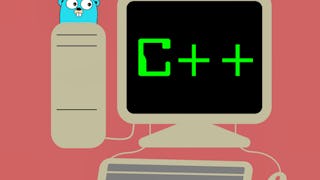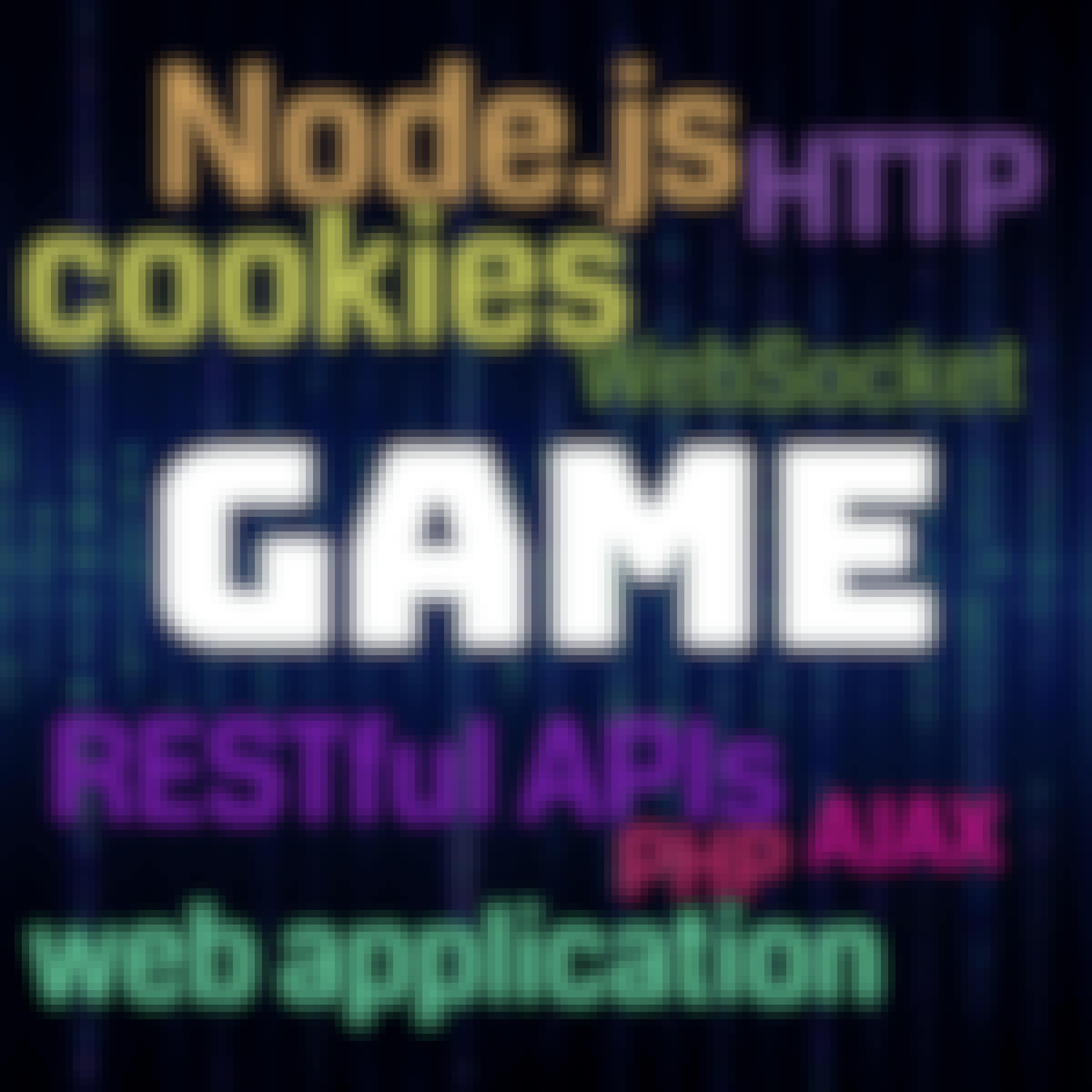- Browse
- Object Oriented Programming
Object Oriented Programming Courses
Object Oriented Programming courses can help you learn core concepts like classes, objects, inheritance, and polymorphism. You can build skills in designing robust software architectures, implementing design patterns, and writing reusable code. Many courses introduce tools such as Java, Python, and C++, which are commonly used in software development, enabling you to apply your knowledge in practical coding projects. Additionally, you may explore frameworks that enhance object-oriented principles, further enriching your programming toolkit.
Popular Object Oriented Programming Courses and Certifications
 Status: Free TrialFree Trial
Status: Free TrialFree TrialSkills you'll gain: Rust (Programming Language), Authentications, Back-End Web Development, Web Servers, Databases, Web Applications, Secure Coding, Restful API, Application Programming Interface (API), Programming Principles, Data Structures, Debugging
Intermediate · Course · 1 - 4 Weeks
 Status: Free TrialFree TrialU
Status: Free TrialFree TrialUUniversity of California, Santa Cruz
Skills you'll gain: C++ (Programming Language), Go (Programming Language), File I/O, Data Structures, Object Oriented Programming (OOP), Software Design Patterns, Debugging, Computer Programming, Unit Testing, Programming Principles, Algorithms, C (Programming Language), Program Development, Integrated Development Environments, Graph Theory, Software Testing, Artificial Intelligence, Integration Testing, Software Design, System Design and Implementation
4.4·Rating, 4.4 out of 5 stars2.5K reviewsIntermediate · Specialization · 3 - 6 Months
 Status: Free TrialFree Trial
Status: Free TrialFree TrialSkills you'll gain: Frontend Performance, Restful API
Intermediate · Course · 1 - 3 Months

Skills you'll gain: Pseudocode, Programming Principles, Debugging, Diagram Design, Functional Design, Computer Programming Tools, Computer Programming, Software Documentation
Beginner · Course · 1 - 3 Months
 Status: Free TrialFree Trial
Status: Free TrialFree TrialSkills you'll gain: Web Development, Web Servers, Command-Line Interface, Software Design Patterns, Data Validation
Intermediate · Course · 3 - 6 Months
 Status: Free TrialFree TrialU
Status: Free TrialFree TrialUUniversity of California San Diego
Skills you'll gain: Debugging, Computational Thinking, Event-Driven Programming, Computer Programming Tools, Algorithms, Programming Principles, Diversity Awareness, Digital pedagogy, Program Development, Education Software and Technology, Technical Communication, Computer Programming, Diversity Equity and Inclusion Initiatives, Code Review, Brainstorming, Software Documentation, Computer Science, Data Structures, Game Design, Student Engagement
4.6·Rating, 4.6 out of 5 stars32 reviewsBeginner · Specialization · 3 - 6 Months
 Status: PreviewPreviewN
Status: PreviewPreviewNNational Taiwan University
Skills you'll gain: Programming Principles, Computer Programming, C (Programming Language), Data Structures, Algorithms, Computational Thinking, Functional Design, Debugging
4.8·Rating, 4.8 out of 5 stars369 reviewsMixed · Course · 1 - 3 Months
 Status: Free TrialFree Trial
Status: Free TrialFree TrialSkills you'll gain: Event-Driven Programming, Application Deployment, C# (Programming Language), .NET Framework, Debugging, Unit Testing, Software Testing, Application Development, Software Development Tools, Integrated Development Environments, ASP.NET, Microsoft Visual Studio, UI Components, Application Design, User Interface and User Experience (UI/UX) Design, File I/O, Software Documentation, Software Architecture
Mixed · Course · 1 - 3 Months
 Status: NewNewStatus: Free TrialFree Trial
Status: NewNewStatus: Free TrialFree TrialSkills you'll gain: Apple Xcode, UI Components, iOS Development, User Interface (UI) Design, Apple iOS, Mobile Development, User Interface and User Experience (UI/UX) Design, Swift Programming, Responsive Web Design, User Interface (UI), Application Design, Animations, Interactive Design, Data Visualization Software, Interactive Data Visualization, Application Development, Model View Controller, Programming Principles, Application Programming Interface (API), Software Design
Intermediate · Specialization · 3 - 6 Months
 Status: Free TrialFree TrialU
Status: Free TrialFree TrialUUniversity of Michigan
Skills you'll gain: Creative Design, Data Structures, Programming Principles, Software Visualization, Python Programming, Computer Programming, Predictive Modeling, Algorithms, Computational Thinking, Debugging
3.8·Rating, 3.8 out of 5 stars6 reviewsBeginner · Course · 1 - 4 Weeks
 Status: NewNewStatus: Free TrialFree Trial
Status: NewNewStatus: Free TrialFree TrialSkills you'll gain: PL/SQL, Oracle Databases, SQL, Stored Procedure, Data Access, Database Design, Programming Principles, Debugging, Relational Databases, Maintainability
Mixed · Course · 1 - 4 Weeks
 Status: PreviewPreviewT
Status: PreviewPreviewTThe Hong Kong University of Science and Technology
Skills you'll gain: Server Side, Restful API, Ajax, Node.JS, Web Applications, Web Servers, Web Development, Model View Controller, Javascript, JavaScript Frameworks, PHP (Scripting Language), Authentications, JSON, Hypertext Markup Language (HTML), Software Architecture, Application Development, Real Time Data, Data Storage
Intermediate · Course · 1 - 3 Months
Searches related to object oriented programming
In summary, here are 10 of our most popular object oriented programming courses
- Intermediate Rust Programming and Web Server Development: Packt
- Go and C++: Programming in Two Successor Languages of C: University of California, Santa Cruz
- Advanced Data Handling and Reactive Programming Concepts: Edureka
- Fundamentals of Programming Using Flowchart and Pseudocode: Packt
- Advanced Rust Programming and Real-World Applications: Packt
- Computational Thinking & Block Programming in K-12 Education: University of California San Diego
- 計算機程式設計 (Computer Programming): National Taiwan University
- GUI Development and AI-Enhanced Programming: Microsoft
- Deep Dive iOS 16 Swift - SwiftUI Programming: Packt
- Big Ideas in Programming: Expressing Yourself with Python: University of Michigan










